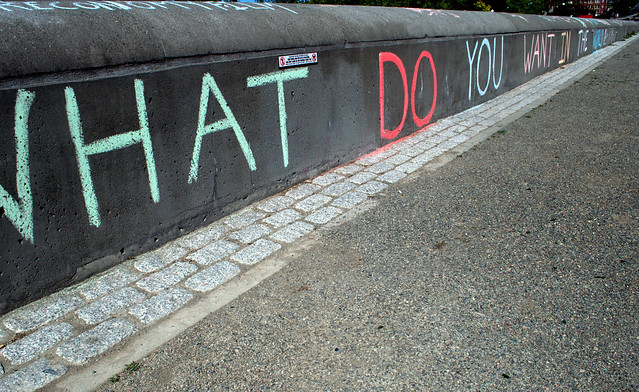
Atheists are a diverse bunch, and we want different things. This is true even when it comes to the subject of religion. Some atheists see themselves as working to end religion; others are perfectly content to limit themselves to secularism (i.e., governmental neutrality on matters of religion). There are many other distinctions among atheists, but I think the question of what atheists want with regard to religion is a particularly important and often misunderstood one.
Although I have heard from many Christians who think that all atheists are determined to stamp out religion, I have not known more than a handful of atheists who would say that their primary goal is the complete eradication of religion. I suspect most atheists understand that this would be an unrealistic goal. And even those who would rank the eradication of religion as high among their priorities almost never seek to do so by prohibiting the free exercise of religion in any way. Australian gamers notwithstanding, large numbers of atheists are not working to ban anybody's "holy" book, for example.
I have known far more atheists who would say that they hope to see an improvement in reality-based education and public policy, critical thinking, and skepticism so that religion will gradually fade away. I have made statements along these lines too. I do not expect religion to die out anytime soon, but I think it would be great if it gradually became less common. But like many atheists who feel this way, I'm inclined to focus more on improving reality-based education, critical thinking, and skepticism because I think they are valuable even if religion was not an issue. I'd be interested in promoting these things even if there were no religious believers.
From what I can tell, the largest group of atheists do not fall into either of the two groups I've mentioned so far. They form a third group, which may be the largest of all. These are the atheists who would say that they don't particularly care what religious individuals believe as long as they do not attempt to impose it on the rest of us through legislation (e.g., undermining medical research, bans on same-sex marriage, and a variety of other pointless restrictions on our freedom). I understand the appeal of this position, and it is one for which I have sometimes found myself advocating. And yet, I cannot quite maintain a position of not caring what religious believers do on the basis of some of their beliefs (e.g., bigotry, hate, discrimination, jeopardizing public health, child abuse). Even if they could be persuaded to stop passing laws that affect me, I'd still worry what some of them were doing to their children and what that means for our society.
What I would most like, at least initially, would be true secularism (actual separation of church and state in the form of government neutrality on matters of religion) and an end to religious privilege. Beyond that, I'd like substantial improvements in reality-based education, critical thinking, and skepticism. I believe that this would be beneficial in and of itself but that it would also contribute to an erosion of religious belief. And while that would not be my primary goal, I think it would be good for humanity.
For more on this topic, see For Those Who Are Curious About What Atheists Want.